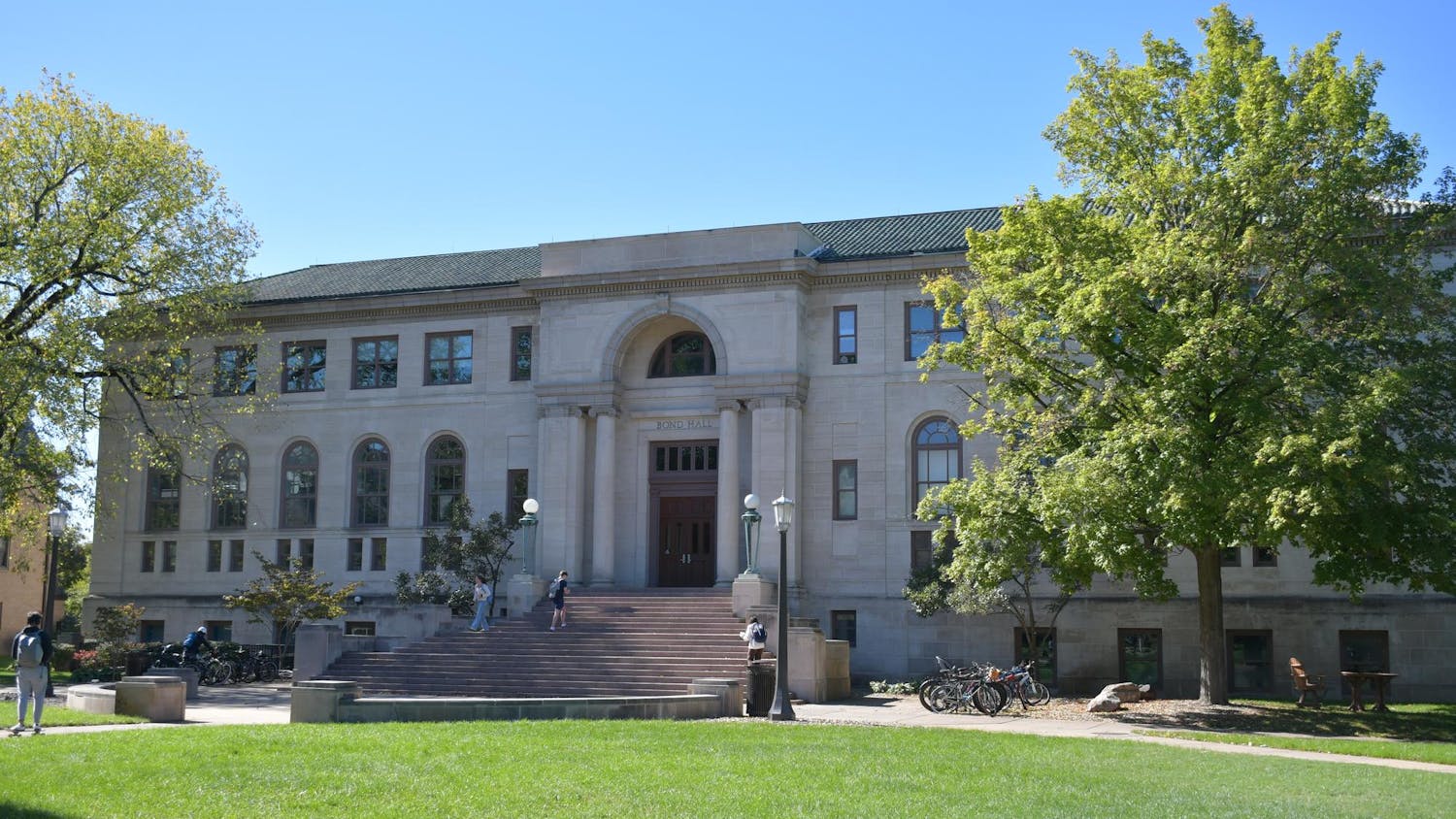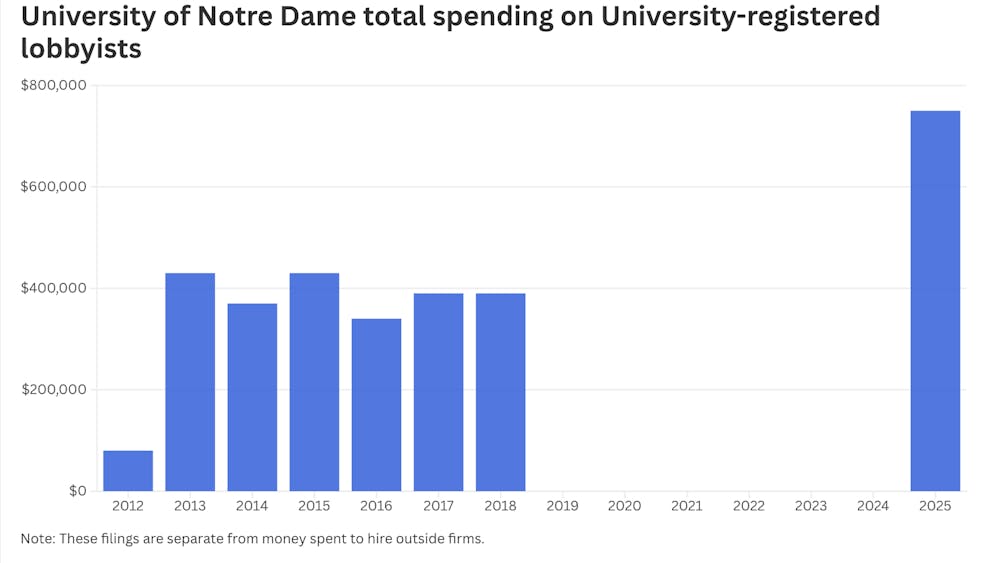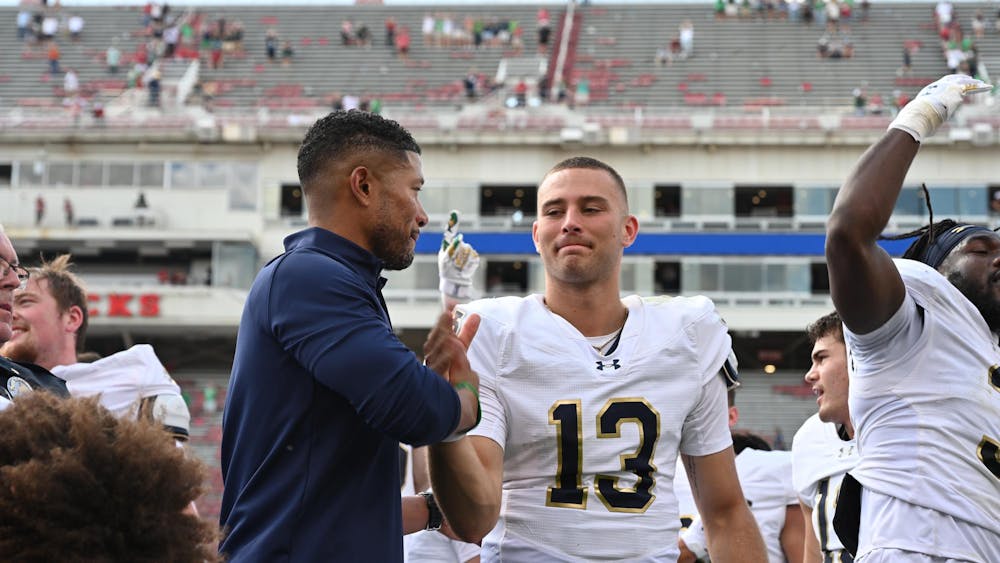Representatives from the University administration discussed the importance of providing access to higher education to individuals of all economic backgrounds in a panel discussion Wednesday. The panel took place as part of Mendoza College of Business’ annual Ethics Week, this year titled “Economic Inequality: on Campuses, in Communities and at Companies.” Panel guests included director of admissions Bob Mundy, director of financial aid Mary Nucciarone and former director of the office of student enrichment Marc Burdell.
Mundy said receiving an undergraduate education is essential for individuals’ financial success as well as their personal development.
“When we talk about the value of college education, there is considerable research that clearly shows the monetary value that over a lifetime a college graduate is likely to earn probably a million dollars or more over a non-college grad,” he said. “But there’s a lot of other value that — and certainly as a Notre Dame undergrad I hope you're feeling this — a lot of other value to a college education. … College graduates tend to be more engaged in significant social issues, they tend to have lower unemployment rates, they raise children who are more likely to go to college. So, there’s a lot of social good that comes out of being a recipient of a college degree.”
The benefits post-secondary education offers means institutions of higher learning ought to do their best to keep their doors open to students of all economic backgrounds, he added.
“If colleges are truly to become instruments of positive social change, then it’s the responsibility of all colleges and universities to seek students who might come from backgrounds that are more economically challenged — so students of lower socioeconomic situations,” Mundy said. “And the good news on this front, as we talk about making college more accessible — and I suppose getting at the ethics of it all — is this population has become highly sought-after by just about every one of my colleagues in the profession.”
Considering the steep price of higher education, however, students of low socioeconomic status are often discouraged from pursuing a college degree, he said.
“Students of comparable academic backgrounds tend to enroll at a lower rate if they’re from a challenged economic environment. And some of that … is the fear of the cost,” Mundy said. “That college is an expensive venture under really any circumstances, and when you’re from a family whose annual income might be $30,000 a year and you’re looking at colleges where the full [tuition] is more than double that, that’s a daunting prospect. … We have to overcome that.”
Nucciarone spoke next. She said the affordability of higher education should be defined in terms of the social and educational returns it can provide.
“Affordability is about investment,” she said.
This considered, Nucciarone said colleges and universities have an obligation to provide enough aid to students to ensure the cost of attending them does not outweigh their benefits.
“There is a significant issue of access if the school does not have enough resources themselves to provide gift assistance to pay for college,” she said.
However, Notre Dame has been able to offer more and more aid to students by the year, she said.
“Our annual scholarship budget has just continued to increase, and much of it is funded through endowment or restricted-type of gifts,” Nucciarone said.
Accordingly, the number of students coming from underprivileged backgrounds has also steadily increased, Nucciarone said.
“We have a growing number of students who are coming from homeless backgrounds,” she said. “We have more parents who are drug-addicted, an increase in the number of undergraduates who are victims of abuse — and they are considered independent.”
Nucciarone said Notre Dame students from low socioeconomic background tend to blend in on campus, often preventing them from receiving the resources and attention they need.
“We don’t even know how many undergraduates lack health insurance,” she said. “For those in special programs, we’re paying for health insurance for those students, but the number of people I’ve made exceptions for has more than doubled in a year.”
Some students must rely on University programs for support when school is out of session, Nucciarone said.
“Students are using the Center for Social Concerns programming as their means of a way to get off of campus but have housing and meals during break time,” she said.
Because many of Notre Dame’s undergraduates come from affluent backgrounds, those who come from economic insecurity frequently feel isolated, she said.
“I’ve had students share their anger with me, stemming from class or residence hall discussions. They find themselves stuck in the middle of a discussion where poor people are being talked about in sometimes kind, sometimes ignorant ways,” Nucciarone said. “And what the people around them don’t know is that there is a poor person standing right in front of them.”
Read More
Trending









